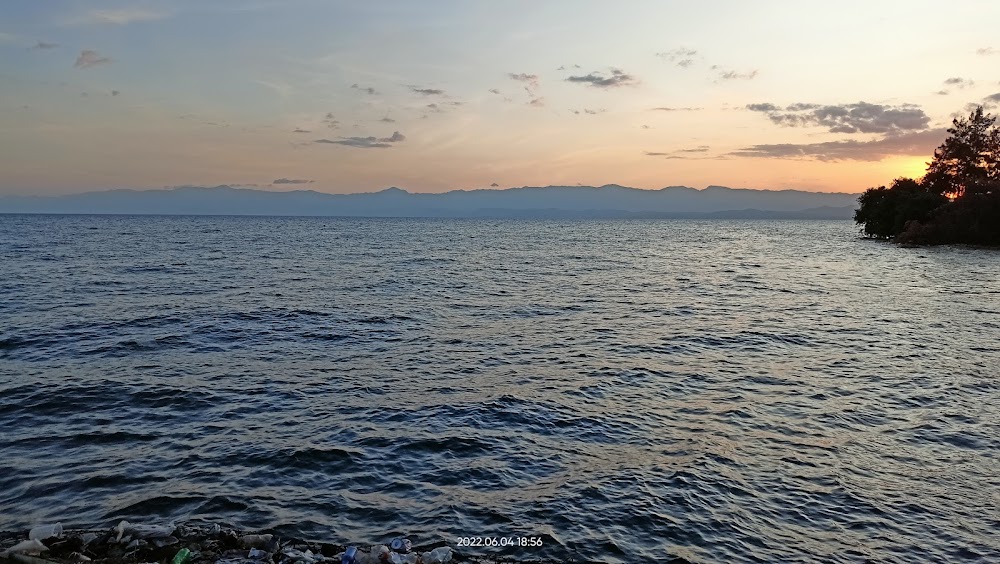Lake Kivu (Ikiyaga cya Kivu)
Overview
Lake Kivu, one of Africa's Great Lakes, is a stunning gem located on the border between Rwanda and the Democratic Republic of the Congo. The charming city of Gisenyi, nestled along its shores, offers breathtaking views and a vibrant local culture that beckons travelers from around the globe.
Geological Marvel
Millions of years ago, the East African Rift Valley was formed through tectonic movements, stretching from the Red Sea down through East Africa. Lake Kivu lies within this rift, specifically in the Albertine Rift valley. As the Earth’s crust shifted, depressions formed and filled with water, creating Lake Kivu. Over the ages, volcanic activity and natural erosion have sculpted its unique landscape, making it a fascinating destination for nature enthusiasts.
Unique Ecological Features
One of Lake Kivu’s most intriguing characteristics is its remarkable depth and the large quantities of dissolved gases it harbors, primarily carbon dioxide and methane. This phenomenon, known as a limnic eruption, adds an air of mystery to the lake's ecology. Although such eruptions are rare and have yet to occur in Lake Kivu, researchers closely monitor gas levels to mitigate potential risks.
Gisenyi: A Cultural Hub
Gisenyi has evolved from a quaint colonial town into a lively community that thrives on the beauty and resources of Lake Kivu. The city’s architecture, with its historical Belgian influences, offers a glimpse into Rwanda’s colonial past. The lake's gentle shores are perfect for relaxation, with pristine sandy beaches like those at Kibuye inviting locals and tourists alike to enjoy sun-soaked days by the water.
Fishing Traditions
Fishing plays a vital role in the life of Gisenyi’s community. Traditional wooden boats are a common sight on the lake, as fishermen head out to catch the day’s bounty. This age-old practice is not just a means of livelihood but also a cherished part of the local culture, with techniques and knowledge passed down through generations.
Renewable Energy Potential
Another significant aspect of Lake Kivu is its potential for energy innovation. The dissolved methane in the lake provides a unique opportunity for renewable energy projects. These initiatives aim to harness this resource, offering a cleaner energy alternative that benefits both Rwanda and the Democratic Republic of the Congo.
Tourism and Recreation
Tourism flourishes in Gisenyi, drawing visitors with its scenic beauty and favorable climate. A variety of resorts and hotels line the lake’s banks, offering recreational activities ranging from water sports to bird watching. The lake’s islands, such as the picturesque Amahoro Island, offer perfect spots for picnicking and swimming, adding an element of exploration to your visit.
Biodiversity and Conservation
Beyond its stunning vistas and energy potential, Lake Kivu is a haven for biodiversity. The lake is home to a variety of aquatic species, while its shores provide habitats for numerous birds and wildlife. Conservation efforts are crucial in preserving this ecological treasure, ensuring that future generations can enjoy its natural beauty.
Vibrant Local Culture
The local culture thrives around Lake Kivu, with bustling markets filled with fresh fish and produce. Festivals and traditional music often fill the air, creating a lively atmosphere that enhances the region's charm.
Adventure Awaits
Gisenyi’s close proximity to the majestic Virunga Mountains adds another layer of adventure, offering opportunities for hiking and gorilla trekking in nearby national parks. This blend of natural beauty, cultural richness, and thrilling activities makes Lake Kivu and Gisenyi a must-visit destination in Rwanda.
In summary, Lake Kivu in Gisenyi is a remarkable place where nature and humanity thrive together. It stands as a testament to Earth's geological wonders and the enduring cultural heritage of the Rwandan people. Not only does the lake support local livelihoods, but it also holds the promise of renewable energy and sustainable tourism for years to come.







